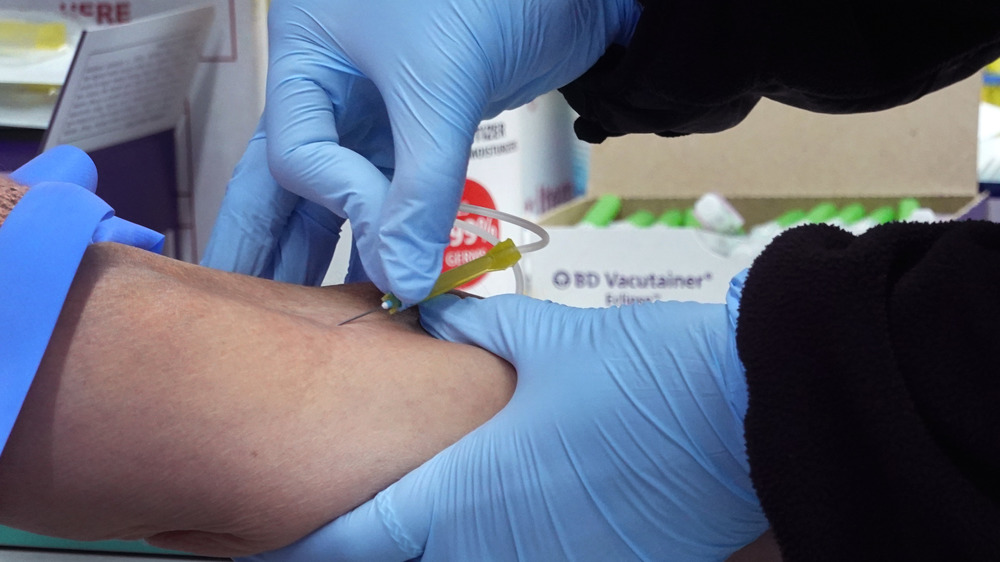The Reason One Blood Type Might Be More Prone To COVID Infection
With the COVID-19 pandemic still underway in 2021, experts continue to conduct research to further understand and combat the worldwide outbreak. With the virus disproportionately affecting various populations such as the elderly, those with pre-existing health conditions, and communities of color, a recent study conducted by Harvard University and the Oklahoma Blood Institute (OBI) found that those with blood type A are also among those populations more susceptible to contracting COVID-19 (via News 19).
John Armitage, M.D., of the OBI states that beginning last year, OBI had begun offering antibody testing to those wanting to donate blood to the center. Testing showed the presence of COVID-19 antibodies in the majority of donors with either blood type A or AB. Conversely, donors with blood type O were found to have the least amount of antibodies present. These findings indicate that those with A or AB blood types seem to have higher rates of COVID-19 infection.
Studies indicate those with blood type A may be more prone to COVID-19 infection than those with blood type O
As described by Dr. Armitage, medical experts believe that the reason these individuals may be more high-risk is due to the fact that those with blood type A possess cells in their respiratory system that offer a "sticky environment" for the virus to more easily attach to (via The Jerusalem Post). He further explains, "The As have a substance very similar to their A blood group that's lining their lungs and their bronchi and respiratory tract."
This research aligns with studies conducted in late 2020 published in Blood Advances by the American Society of Hematology. The research indicated that those with blood type O were least likely to contract the COVID-19 virus and were less likely to experience critical outcomes such as organ failure, or the need for dialysis or ventilation than those with blood types A, B, or AB (via Science Daily).
It's important to note that while these studies propose a potential link between blood type and COVID-19, it cannot yet be confirmed as the sole cause of infection. Further research is still needed to rule out other potential variables as experts anticipate that results are likely to vary across different countries and ethnic groups.


